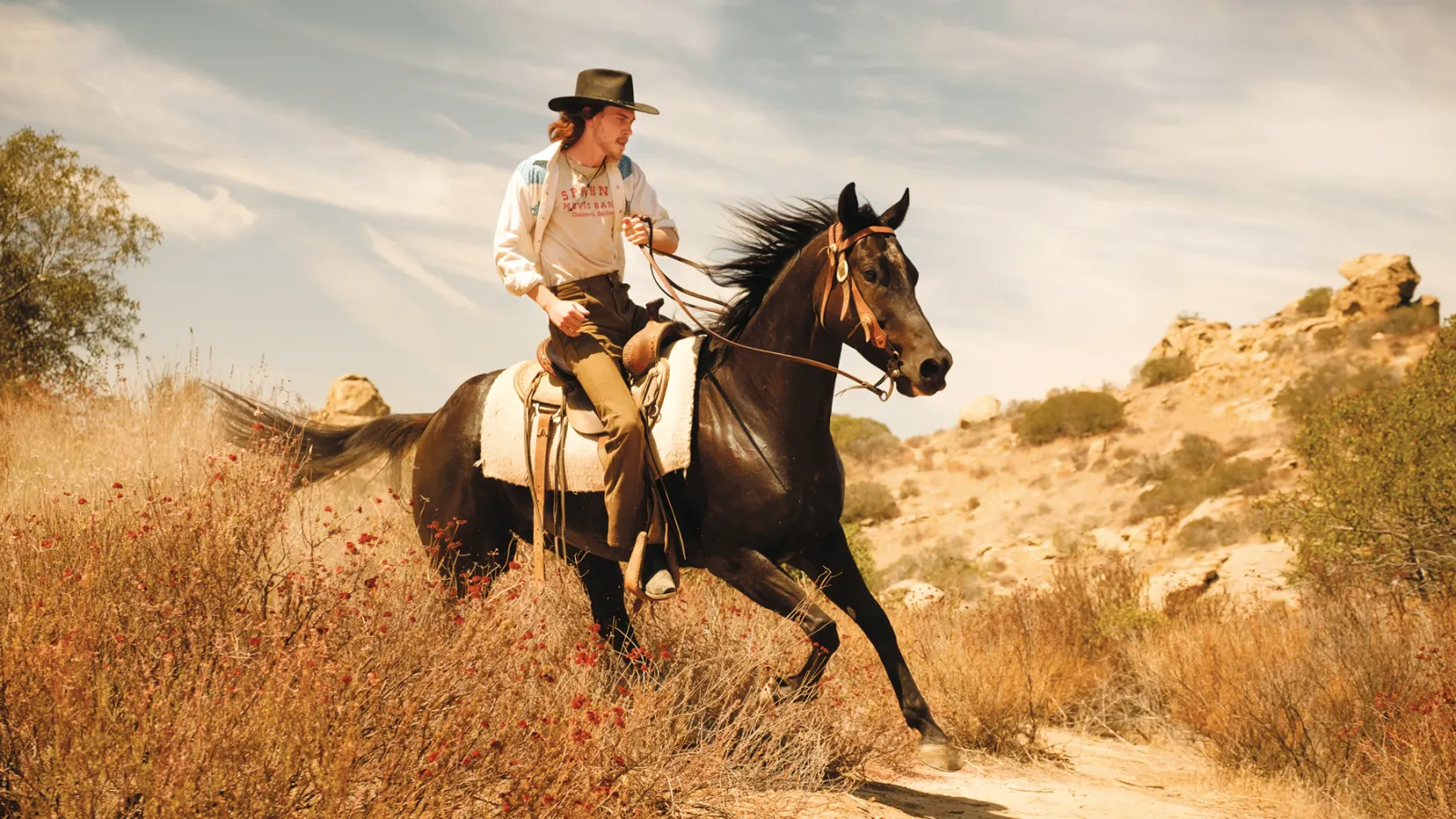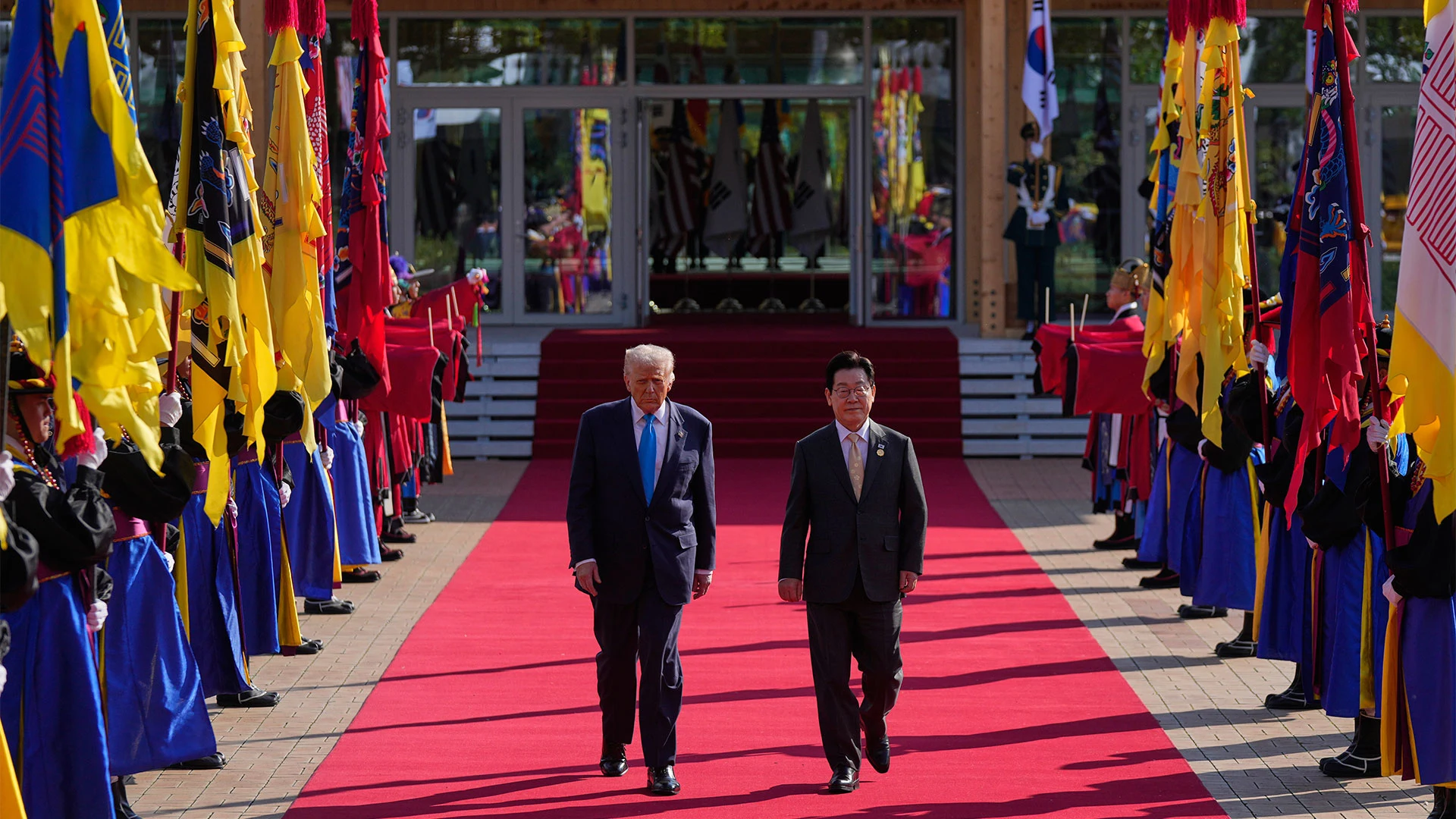Copyright Rolling Stone

A magnificent new coffee table book, ‘The Making of Quentin Tarantino’s Once Upon a Time in Hollywood’ by author Jay Glennie, arrives in stores this week. For fans of the movie it’s a must-have behind-the-scenes look at Tarantino’s classic revisionist history of the Manson family murders. The film is also the director’s love letter to a bygone Los Angeles era, a lost world of louche glamor, with actors, directors, hippies, and hustlers roaming the city’s studio lots, canyons, and hills. Tarantino was a fan of Glennie’s work having read his definitive accounts of ‘The Deer Hunter’ and ‘Taxi Driver’ and personally asked for the “Jay Glennie treatment,” a deep dive into what he calls his favorite movie. In this exclusive excerpt, we go inside the casting auditions of the Manson family, where Tarantino managed to bring together the next generation of movie stars, including Austin Butler, Sydney Sweeney, Maya Hawke, Mikey Madison, and Margaret Qualley. Austin Butler’s cinema gods had thrown down a tablet, and written on that tablet was an invite to audition for Quentin Tarantino in person. His self-tape had struck a chord. “I was just so happy to learn that I was going to get to meet Quentin,” Butler says. “I had longed for this day, as I said, since I was 12. I hadn’t let fear get in the way of recording my tape. I wanted that spirit, you know? Don’t overthink it — just go, just jump in the water. Stay as present as you possibly can, and don’t overthink it.” His mindset had paid off, and such was their determination to see him in person that Quentin and casting director Vickie Thomas decided to work around the young actor’s theater commitments. With that in mind, the Manson Family workshop would be held on June 11, a Monday — Butler’s one day off. “As soon as I finished the matinee on Sunday, I flew to Los Angeles,” Butler recalls. “I wanted to spend the night in my home there. I was still completely in the dark as to what role I was auditioning for — literally, no idea. I still thought it was for a cowboy. In a way, it was a blessing for my mental health, right, because I did not have the option to overthink. On the plane, I had nothing to prepare, so it allowed me to just be, to just be on the plane, to eat, to actually taste the food I was eating, to have a conversation with the people on the plane, and to not be thinking ahead. Just be present. I did not have anything to read, no script, no side. So I ate and then slept like a baby.” Editor’s picks A normal day off in New York was a day to sleep late and relax — one day to recuperate from a busy schedule — but on this particular Monday, Butler was up nice and early, refreshed and supercharged. He was ready to play. Arriving at the offices around 9 a.m., he was greeted by Thomas. He decided to take a chance and ask the casting director for some more detail. “Do you know anything about the part I’m to audition for, Vickie?” “Yes, it is Tex Watson.” “OK.” He had been told that all phones were to be handed in upon entering the building, but thinking on his feet, he made a beeline back out the front door, whipped out his phone, and hit the internet. “Oh — oh, my God! Tex Watson was part of the Manson Family!” he said out loud. He quickly came across some videos and saw how Tex moved and how he spoke. Tex struggled with pronouncing “s” sounds. Butler opened up some articles and speed-read like never before. Related Content “Not knowing that I was actually up for Tex simplified things,” Butler recalls. “I wasn’t on the plane trying to understand what his childhood was like, what did he eat for breakfast, and those sorts of things. It was more streamlined because I didn’t have the time for it. I quickly read and watched what I could. I certainly had no idea that Quentin and Vickie liked my tape so much, and hearing that now, does it give you more confidence or does it add to the pressure? If I had known that going in, I don’t know. I think not knowing anything suited my psyche.” Reentering the building, he was greeted with an instruction: “OK, Austin, we need to take your phone.” After signing an NDA, he was guided to a room. “Quentin will arrive soon, and he will give you material to read.” Already in the cinema room at the Magnum Opus offices were seven young girls, all seemingly from 1969. Austin was the first guy, but then another one appeared. “Hi! I’m James.” “Austin.” “Fuck, this is quite possibly the most handsome man I’ve ever met,” James Landry Hébert thought at the time. Pleasantries were exchanged, and though the pair were evidently in a showdown to play the role of Tex, there was no reason to not share some love — may the best Tex win, and all that. Man, if the vibe of the late Sixties and the early Seventies was the pervading spirit of the day, then let peace and love win! “Austin Butler was the only other dude there,” Hébert recalls, “and I’m, like, ‘This is what I am competing against?’ Fucking Elvis! He wasn’t Elvis at the time, but he might as well have been. He was one of the best-looking guys I had ever met. So it’s, like, me versus you for Tex, basically. Everyone else there were potential Manson girls — an array of great actresses and then also daughters of great actors and actresses, and then all these people who had never acted but everyone was really interesting, artsy, seemingly like authentic Manson girls.” As the guys eyed each other, Madisen Beaty had made the decision to control her breathing. If she managed her inhaling and exhaling, she could control any fretfulness. “My nerves that day were crazy,” she recalls. “I had no expectations, but it was one of those moments when you walked into the room, and we were all bright-eyed and bushy-tailed, but you could feel the nervous tension.” Mikey Madison, Quentin’s secret agent, was surveying the room. It was crammed full of talented actors. She wondered, did she really have the role? Vickie Thomas had everyone sit in a circle, and then Quentin came into the room. The shift in focus was palpable. “Hey guys, how you all doing — you excited?” A nervous murmur greeted the filmmaker. “Wow, just seeing him in person — to be in the same room as the guy who I had so much admiration and respect for — just blew my mind,” Austin Butler recalls, laughing. “It was Quentin Tarantino, and he looked every inch like Quentin Tarantino. It kinda blew my mind!” Maya Hawke’s memory of going into the day was, she says, of “being so scared because I guess I knew that Quentin was going to be there, and I have known him my whole life. But, of course, in the room that day, he was very different, you know? He wasn’t, like, kooky Uncle Quentin — he was in serious mode.” Quentin followed up his greeting by saying to the young group he had assembled, “Look, I know you’re nervous, and that is OK, but I don’t want you to be nervous. We’re here to have fun. We love movies, we love what we do, and I just want you to have fun, and I don’t want any nerves to spoil the fun we’re gonna have, alright? “OK, everybody tell us your name and what you last did,” he added. An outsider might have felt like they had walked in on an AA meeting, but the attendees were there to convince the filmmaker in their midst to hire them. Each would-be Manson Family member made their introduction, giving their background or, for the nonprofessionals, something about themselves. “Hi, I’m Austin Butler, and I am currently on Broadway in Eugene O’Neill’s The Iceman Cometh.” “Oh fuck — that’s with Denzel Washington,” Butler’s fellow Tex wannabe thought to himself. “How the fuck do I compete with that? I’m growing out a Mohawk from Stranger Things.” Finally, the turn came for the other young dude in the room to introduce himself. “Hi, I’m James Landry Hébert. Stranger Things was the last thing I did.” And then it struck him: Austin Butler might be working with Denzel Washington, but he ain’t no cowboy. “Fuck it, I was brought up on a reservation — I’ve ridden horses all my life. Tex has to ride a horse. Come on, James,” he thought to himself, “tell them about your horse riding! “I was brought up on an Indian reservation, and when I am not acting, I work on a ranch, working with and riding horses all day.” Others began talking about their experience on horses, and then, to James Landry Hébert’s dismay, the other guy spoke about his prowess on a horse. “My grandfather owned a ranch, and he put me on a horse from a young age.” Fuck! With the introductions over, and despite Hébert’s professed proficiency with horses, it was obvious to him that Butler had won the round: Denzel Washington and horses? Come on! Quentin, though, wanted to alleviate any fears that their past experience or inexperience would be crucial. They were all there on merit. “Look, an actor’s gotta do what they’ve gotta do,” he told the group. “We’ve got to eat. That’s OK — who cares what you’ve done before? You’re here now. You could have done nothing, but what matters is, we’ve seen something in you, and you’re here.” QUENTIN EXPLAINED about the scene they were going to be working on that day: Three Manson girls and Tex arrive in a private cul-de-sac in their car and are confronted by Rick Dalton. The sides were duly handed out to each attendee. “OK, I am going to split you into two groups,” Quentin continued. “Austin and James, we are going to have different Manson girls and mix and match them with you both.” Pointing at the girls in turn, he started counting off names of the family members. “OK, you’re a Katie, you’re a Sadie, you’re Flowerchild . . .” Looking at Beaty, Quentin said, “Katie is Patricia Krenwinkel. Do you want any background?” “Kind of odd,” thought Madisen Beaty to herself. “I’m playing Patricia ‘Katie’ Krenwinkel again.” “Well, I’ll take anything,” Beaty replied, “but I do know who she is.” “OK. Now, Austin, because you are onstage every night with Denzel doing Eugene O’Neill, I am going to make you the team leader of your team,” Quentin said, “and James, you’re the leader of your team. You decide how you want to do this. I am not going to give you any direction at this stage. Alright? I’ll be back in 30 minutes or so.” Everybody took off to their own little oasis and began to read through their pages — the only sound in the room was the flipping of paper. “Look, I cannot swear to the timings because there was no clock in the rehearsal room,” Beaty recalls, “but it felt like 20 minutes or so had passed and we were all off book.” Any petty rivalries were put aside, and in the true sense of the actor’s code, offers came to help each other read over the piece. “It was great, but I think we all had our own process to regulate our nerves,” Beaty says. “I controlled my breathing — almost meditated. Others chatted, and Austin paced. Austin is a movement guy, a pacer. You do what works for you.” “It’s true, I paced!” Butler confirms, laughing. “But in that moment, it allowed me to focus on what I wanted to do in the scene: Who are these people to me, and why am I trying to affect them, and what do I want? It just simplifies the drives for me — just working over the material and aiming to do your best when Quentin walks back in.” Maya Hawke, who had flown into L.A. from New York, says she felt like she had been transported into The Hunger Games. “It was unlike anything I had or have since been involved with.” Reading over the material, it was obvious to Butler that the players were in a car, and so, his theater experience kicking in, he pulled up some chairs. Now, there was a car. His family began rehearsing. Finally, Quentin reappeared. “Who wants to go first?” Butler looked at his group and said, “Shall we?” “That’s a Tex move,” Beaty thought to herself. “I was like, go!” Butler says. “You can either let fear rule you, or you meet it head on.” As each group came up, taking seats as though they were in a car, Quentin gave notes. Butler says he recalls the filmmaker “walking around and coming right up to your face, and then he’d dart to another angle, and it was as if his mind was the camera. The purity was incredible — he would watch, and we would play.” Quentin called a halt to proceedings with an inquiry. “OK, does anybody want to play the Leo role, Rick Dalton?” Tentatively, two of the would-be Manson girls raised their hands. The first girl went up and read the lines as a customary reader would, servicing the actor and removing themselves from the equation. It was all very traditional. Traditional was not what Quentin was necessarily looking for. The scene reading over, he called for his next Leo. “Alright, Madisen, now is your time to be Leo!” Beaty made a snap decision to play it for real. For no other reason than the monotone, “correct” reading had already been given. Go with something different, her gut told her. There was also a secondary reason: She was effectively losing out on playing one of the Manson girls, but here was an opportunity to play Leonardo DiCaprio in front of Quentin Tarantino. Why not go for it? “I figured it was like my audition, balls and all,” she recalls. “You know, you can always pull me back, but you don’t know how much you can push me.” Beaty gave it the whole shooting match and went crazy-Rick and began screaming in Butler’s face, spittle flying. “You motherfucking hippies!” Quentin let out a belly laugh and clapped. “Fuck, yeah!” Beaty remained laser-focused and carried on challenging Butler’s Tex. Her thinking was, this is either going to mess it up for her or show what she could do as an actor, but either way, it was too late to turn back now. “I wanted every opportunity to play with Quentin,” Beaty says. “You know, whether I get the role or not, am I going to get the opportunity to play with one of the best filmmakers of all time ever again? It was worth the chance of having him say, ‘Calm down,’ I figured.” Despite nagging doubts as to the validity of what she believed to be true — that she did indeed have the role of Kitty Kat — Mikey Madison was loving rehearsing with the prospective other Manson Family members, and, she says, “Watching Quentin work us was just so interesting.” Lunch was called. “What time do you think it is?” Butler asked. Nobody had a clue. They were in some weird but cool time warp. Over a bite to eat, everybody kicked back and chatted it up a little. Their nice group of nine became 10 when Quentin joined them. “It all felt so personable and informal, just everyone talking with each other,” Sydney Sweeney recalls. After lunch, Quentin changed it up, switching the Texes to different groups. James Landry Hébert’s group was pulled into an office to work together. “I’m like, ‘Holy shit, I am in Quentin Tarantino’s office right now!’” he recalls. He spied a headshot on what he presumed was Quentin’s desk. It had the Jughead character’s name, Business Bob, written on it — the guy he had originally read for. He couldn’t help himself and flipped it over to see who had won the role. It was Scoot McNairy. “That’s cool,” Hébert thought to himself. “Scoot McNairy is great, but I am in Quentin’s office now, so I think I won here — maybe we’ll see?” Quentin continued switching up the different dynamics. “His playfulness stood out,” Hébert recalls. “You could tell he was so excited to be there casting his movie and knows everything about the subject matter. He just kept it loose and fun.” For Quentin the auditioning process serves two functions. “One is that I am auditioning actors to fill the given roles, but two, these people are not being paid to come down here. So that is why it can be draining, because I don’t want them to waste my time. I don’t have time to waste, so I deserve their best, or they shouldn’t be wasting my time, but consequently, they deserve my best, or otherwise I am wasting their time. “So, even if I know — and believe me, there have been times when I did not want to do this, and never in a million years will I cast this person — I will give them another chance at the scene. You will always get chances with me, there will always be some note from me. You will leave the room saying, ‘I worked with Quentin Tarantino.’ “But it serves another function for me,” he adds. “There is a little bit of those auditions of me remembering how to direct again. It is exciting! I have written it, and it is a solitary existence, and now I am seeing the baby on its feet. I am testing it out and thinking, ‘Hey, that is a funny line. That’s funnier than I thought.’ I am figuring out things, and I am remembering how to talk to actors again, and it is my job to bring the best out of them, and I am remembering how to do that, and by the time I get through rehearsal, it is my crash course in directing again. I go through everything, and it teaches me to keep up and keep sharp so when you are up in the clouds, you do a good job.” The workshop continued. Beaty never made it out of the cinema room. She did, however, get to play with both Texes. “When I was paired with James, his Tex was so different from Austin’s,” Beaty recalls. “I loved the fact that James played it like a real-life cowboy. It was an elevated version of James. It felt so authentic. Then Austin played it where I felt a little more unnerved. This guy was menacingly crazy and so quiet — whereas James was so animated and free, and you didn’t know what he was going to do. If you had asked me on the day who was going to be cast as Tex, I would not have had a clue.” Beaty looked at the last stage car she was in. She was sitting up front with Butler, with Maya Hawke and Mikey Madison in the rear. It felt good — there was a connection. “In my mind, it wasn’t like I knew that Quentin had found his four,” she recalls. “I maybe felt that I was doing something right, but never was I thinking, you know . . .” “There was a sense of confusion for us over the different parts,” Hawke says, “but looking back, Quentin was kind of casting during that day and sort of helping us find our way into the car. He was orchestrating this group of people and where each person fit. I loved Mikey immediately.” In the early evening, Quentin brought an exhausting, and yet exhilarating, day to an end. “Thank you all for coming. Did you guys have fun?” There was a universal cheer — everybody had been tickled pink to be there. “It all felt surreal,” Sydney Sweeney recalls. “Sometimes I still look back on it and it feels like a dream that I’m trying to remember. That audition day will forever be one of the most unique experiences I’ve ever had.” Madisen Beaty found herself where her day had begun, in the car park, sitting in her car. Where had the day gone? Dusk was settling in, and she just took 10 minutes to sit in a shocked silence and ask herself the question, “Did that really happen?” Later, as the adrenaline was still threading through her body, her brain told her that she was shattered, but the buzz was telling her that sleep was not an option. She had won the actor’s lotto. She called a girlfriend. Explaining to her that she could not talk about her day but needed company, they shared a bite and raised a glass. MANY OF THE PROSPECTIVE Manson Family members had been cut loose, but Austin Butler found himself sitting next to Maya Hawke alone in Quentin’s office. “We’re the only two people in the room, so I guess it must be good news, right?” Butler asked her. “I’m supposing,” Hawke replied. “I don’t know.” An overriding thirst came over Butler, and he left the room in search of a glass of water. “Hey, where are you going?” Vickie Thomas asked him in the hallway. “I’m just gonna grab some water.” “OK. After you get your water, I want you to meet me in that office over there.” Thirst quenched and water in hand, as instructed, Butler entered the office and found himself standing in front of Quentin and Thomas. “Get the door for me and take a seat, Austin,” the filmmaker told him. The three of them settled, and Quentin began to lay out his vision for the film. “Obviously, I want you to read the script.” Butler was trying to listen and take in everything, but in his mind, he was frantically thinking, Is this happening? Is this actually happening? Is Quentin talking like I have the role? “I have this idea for a horse. I hear you can ride horses. Are you actually any good?” “Yeah, I have ridden horses since I was a kid. I’m fairly good. I would love to do that.” “There is a fight scene between you and Brad Pitt. Would you be up for fighting Brad?” “Absolutely! I mean, Fight Club is one of my all-time favorite movies, so the idea of fighting Brad Pitt, you could not even fathom how much of a dream come true that is, Quentin,” Butler replied, beaming. “OK, alright. Well, I would love for you to be my Tex Watson.” “Yeah!” Butler shot up and, unable to dampen his unbridled enthusiasm, he gave Quentin a hug, and then it was Vickie’s turn to be embraced. He was in dreamland. “Well, I now want for you to read the script so you know what you are getting into,” the filmmaker continued. Before that could happen, he was asked to sign another NDA. Taking a seat in a small room crammed full of film canisters, Butler took a moment to look at the script before him. For one, it was huge, and second, it marked the first time he had read a Quentin Tarantino script before the movie had hit theaters. He was truly in dreamland. “I had flown out just for the day, so it was a whirlwind of a dream come true. It was just surreal. I am a slow reader, but I was just blown away by its brilliance.” Finally, with the clock kissing 9 p.m., his cell phone was returned to him, and he made his way into the Los Angeles night. After he switched on his phone, it immediately began to light up with a chain of missed calls, text messages, and voicemails. The realization hit him: He had missed the other appointments his agency had booked for him. Taking advantage of Butler’s rare visit to Los Angeles from New York, they had booked auditions, including one for Top Gun: Maverick with Joseph Kosinski. Listening to the last message, Butler detected fear in the voice on the other end of the line: They were on the verge of sending out search parties and contacting the LAPD to check on any car accidents that day. Without bothering to listen to the remainder of the message, he placed a call to his agents. “Where are you? Are you OK? You missed all of your other auditions today!” “I’m sorry, but I got that part. I am going to be doing the movie with Quentin.” MAYA HAWKE WAS told that she was to be a fully fledged member of the Manson Family. She now had to navigate finding time from the show she had signed on for: She was to play Robin Buckley in the third season of Stranger Things. Before leaving the audition day, Mikey Madison just had to erase doubts that she truly had the role. “Let me tell you, Quentin is such a good actor,” she says. “He was very nonchalant when he was talking to me — nobody would have ever guessed that I had been given a role. He even made me think, like, ‘Oh, do I actually have the role?’” Her doubts were erased when it was confirmed that nothing had changed — Kitty Kat was hers. “I just wanted to double-check!” LATER THAT EVENING, Sydney Sweeney found herself at an industry event. She spied Vickie Thomas. “Vickie pulled me aside and whispered the news. I had to promise not to say anything, which I’m breaking now!” The role of Snake, a Manson Family member, was hers. She recalls “floating on cloud nine for the rest of the night.” Flying back to New York the following morning, Austin Butler may have missed his rest day, but there was no feeling of exhaustion. On the contrary, his body and nerves were charged. “It is the only time that I have been told that I had the role as I left the room,” he says. “That evening, I walked out onstage with Denzel, and I could not help but think, as I looked out over the audience, ‘I am going to be doing a movie with Quentin Tarantino.’ It felt just so surreal.” Trending Stories



